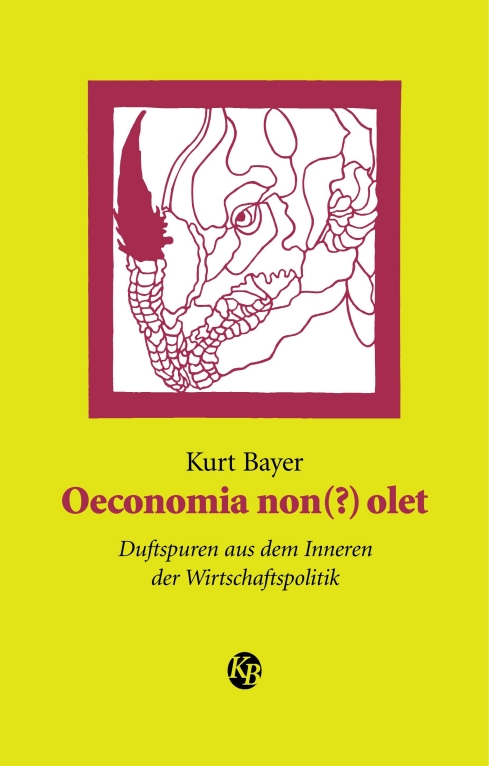International gremia have a hard time making decisions. When they finally arrive at a decision, it is invariably a compromise, that is, it is not the “functionally best” decision. Of course, in economics, there are no “functionally best” decisions, because the individual arguments entering into it come from different people/nations, representing different viewpoints or views of the world or of what they deem to be “reality”. These differences may be reinforced by ideologies which harden such viewpoints. Skilled moderators, CEOs, presidents are aware of these plural rationalities and find a compromise with which all participants, or at least most – depending on the decision rules – can live. I wrote about this in my post of Dec. 15, 2008 in this blog.
Mario Draghi and his executive board have delighted investors and markets with their Sept. 6, 2012 decision to have the ECB purchase short-term government bonds of countries who apply for ESFS/ESM help. The ECB objective is to provide a complete backstop (thus unlimited time and size of the program) to speculation on government bonds which are charged unsustainable interest rates by financial markets. In order not to violate the ECB statute, forbidding monetization of government debt, i.e. government financing by the ECB, ECB bond purchases will be limited to the secondary market. This means, ECB will purchase outstanding government bonds (with maturity of up to 3 years) from existing bondholders. No wonder, the financial markets are enthusiastic. In this way they can offload their e.g. Spanish or Italian bonds (which have been downgraded by rating agencies and thus increase the capital requirements of banks) on to the ECB. The additional demand by ECB will increase the prices of these bonds and – pari passu it is hoped – their rates of return (which are inversely correlated with their prices). ECB intends to hold these bonds indefinitely, i.e. withdraw them from circulation. In order to counter the fears of some that such purchases which increase the money supply in the Eurozone and thus would cause inflation to rise, Draghi has promised to “sterilize” them, i.e. to withdraw money from other parts of the monetary system. And again, in order to allay the fears of fiscal and monetary hawks, these ECB purchases will only be implemented if the applicant countries accept the strict ESM “conditionality”, i.e. strict fiscal austerity in order to bring down their debt.
The Lord giveth and the Lord taketh away. The bond purchases program is a good idea, especially since it finally – after long prodding and worsening of the crisis – provides a “lender of last resort” umbrella to the Eurozone’s monetary system, thus discouraging speculators from speculating in favour and potentially profiting from one or the other Eurozone member’s eventual default. But, once again: how should a country in deep recession, with unsustainable debt, fulfil the conditions of fiscal austerity? Shall it deepen its recession by increasing taxes and cutting public expenditures even further? How shall it deal with the political fallout from the immiserization of its citizens? It is a catastrophe that the “plural rationalities” of Eurozone policymakers are so fixed at the extremes of two viewpoints. It would seem to the outside observer that the deepening of the crisis during the last 2 years and the failure of the previous policies of austerity might have led to a lesson learned for the hardliners. But it has not.
The view that it is previous policy mistakes by “Southern” (plus the Irish) governments which led to the debt crisis might be comforting to those countries whose bond yields are low: it makes them feel virtuous, while “the others” were profligate. But the Eurozone economy is not a moral or religious event. The moral categories are misleading, because they ignore the fact that the Eurozone economy is heavily inter-connected, that in this particular case the low German (and Austrian, and Finnish and Dutch) bond yields are a result of the high yields of Spanish, Italian, Portuguese and Greek bonds. The capital flight from the highly indebted countries into the Northern ones has increased the spreads between high and low-yielding bonds.
And the fact is: even countries which pay only 2%-3% on their bonds still have a very, very significant debt problem which will take many years to work out. Thus: the effects of the crisis are everywhere; no Eurozone country and no European country outside the Eurozone is immune from the effects. We are all in the same boat, even though some are below deck and some above. But we must master this crisis together, not at the expense of each other.
Draghi and his colleagues have – finally –taken an important step forward to mitigate the crisis. But they have also taken counter-productive measures. Plural rationality dictates compromise solutions. We have gained some time and taken some steps. We need significant further-reaching ones. Ceterum censeo: we need a banking union with joint deposit insurance and supervision; we need a fiscal union with joint fiscal policymaking that recognizes that during a recession austerity is the wrong way forward; we need a real monetary union with a lender-of-last-resort Central Bank; and we need to take government finance completely out of the hands of the private (speculative) sector. All this requires a political union which recognizes that different worldviews exist and accommodates this reality.






In most rankings of American presidents (including Arthur Schlesinger’s) Abraham Lincoln is considered to be the most important office holder in history. His main achievement was the preservation of the Union, with his emancipation declaration freeing all slaves in the rebellion states just a means to this end. One politician absent from the rankings, because he never became president, may even deserve more credit (literally) for making the United States of America a sustainable arrangement: Alexander Hamilton.
His drive to create a debt union by assuming state debts on the federal level in order to establish credit abroad and to make the central government the chief taxing authority probably did more to build the country as the superpower we know today than any other of its founding fathers (Jefferson’s vision for America was more bucolic in nature). For his contemporaries assumption of debt by the federal government was considered to be an “unfair” advantege to the poorer states in the North (sic!) that had – unlike their richer counterparts in the South – not paid off most of their independence war obligations (Southerners also detested the idea that “speculators”, mostly from the urban elite, would get paid and have increased influence over Congress – sounds familiar?).
What was needed was a compromise. If one can believe the account of Jefferson it was found over dinner. In exchange for moving the capital further South, Virginia delivered the necessary votes to allow for the assumption of state debts (and the establishment of the full faith and credit of the US; I live in the compromise city today, Washington DC).
The lack of Hamiltonian figures who can compromise over dinner with their greatest adversaries is what I miss most in the current discussions. Maybe DSK would have qualified (Hamilton in his prime was mired in a sex scandal as well….).
Greetings from Franziskaner Platz
Marcus
Thank you Marcus: Franziskanerplatz is always an inspiration, as are your insights. Whether Draghi will ever reach Hamilton’s legacy status, is doubtful, but he does seem to make a strong effort. The interesting thing for the future will be, how Bundesbank-Weidmann who was “isolated” in this decision – even though many of the details are obviously due to him and his ilk – will act in the future. Isolation is never a promising negotiation stance.